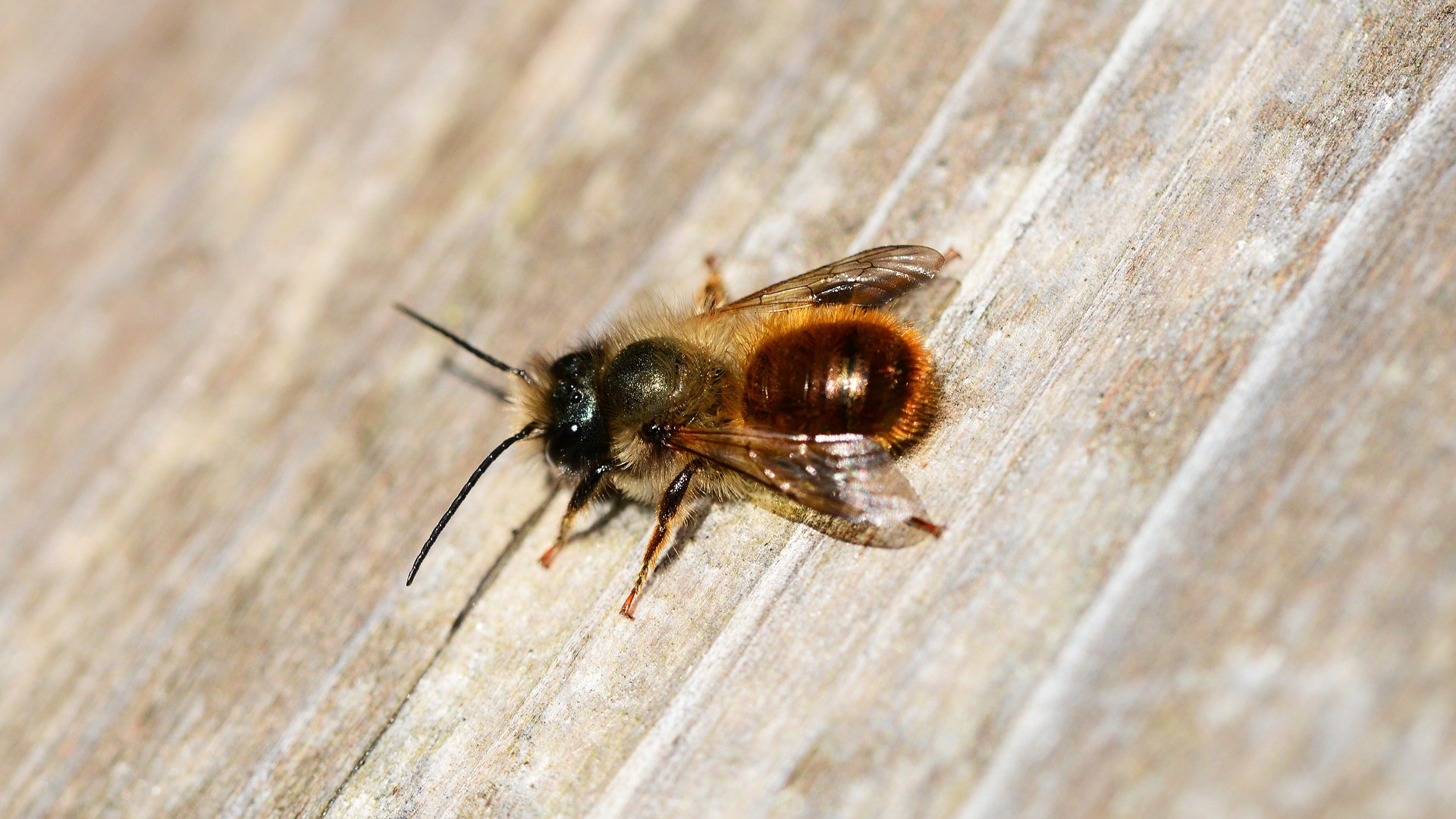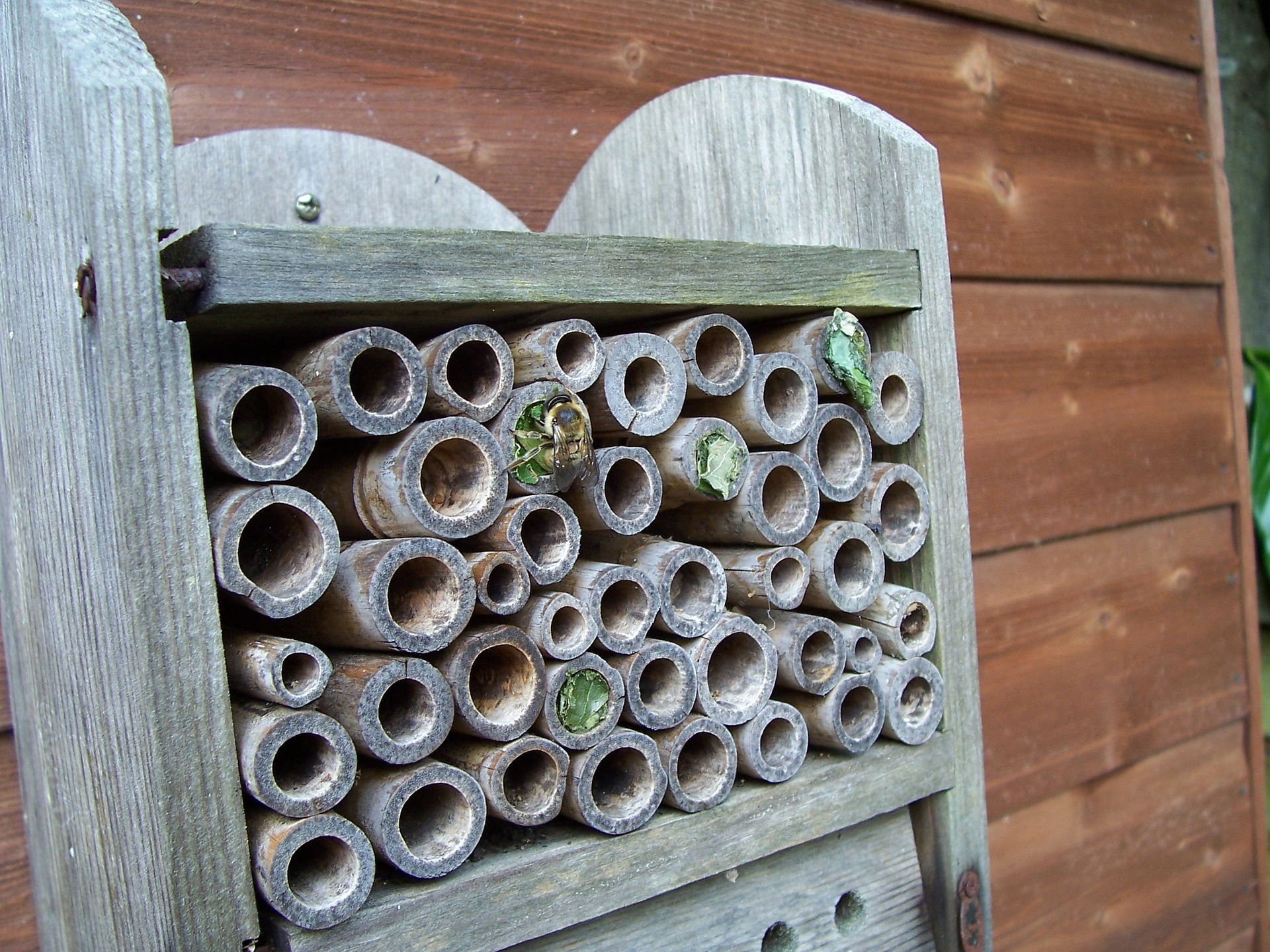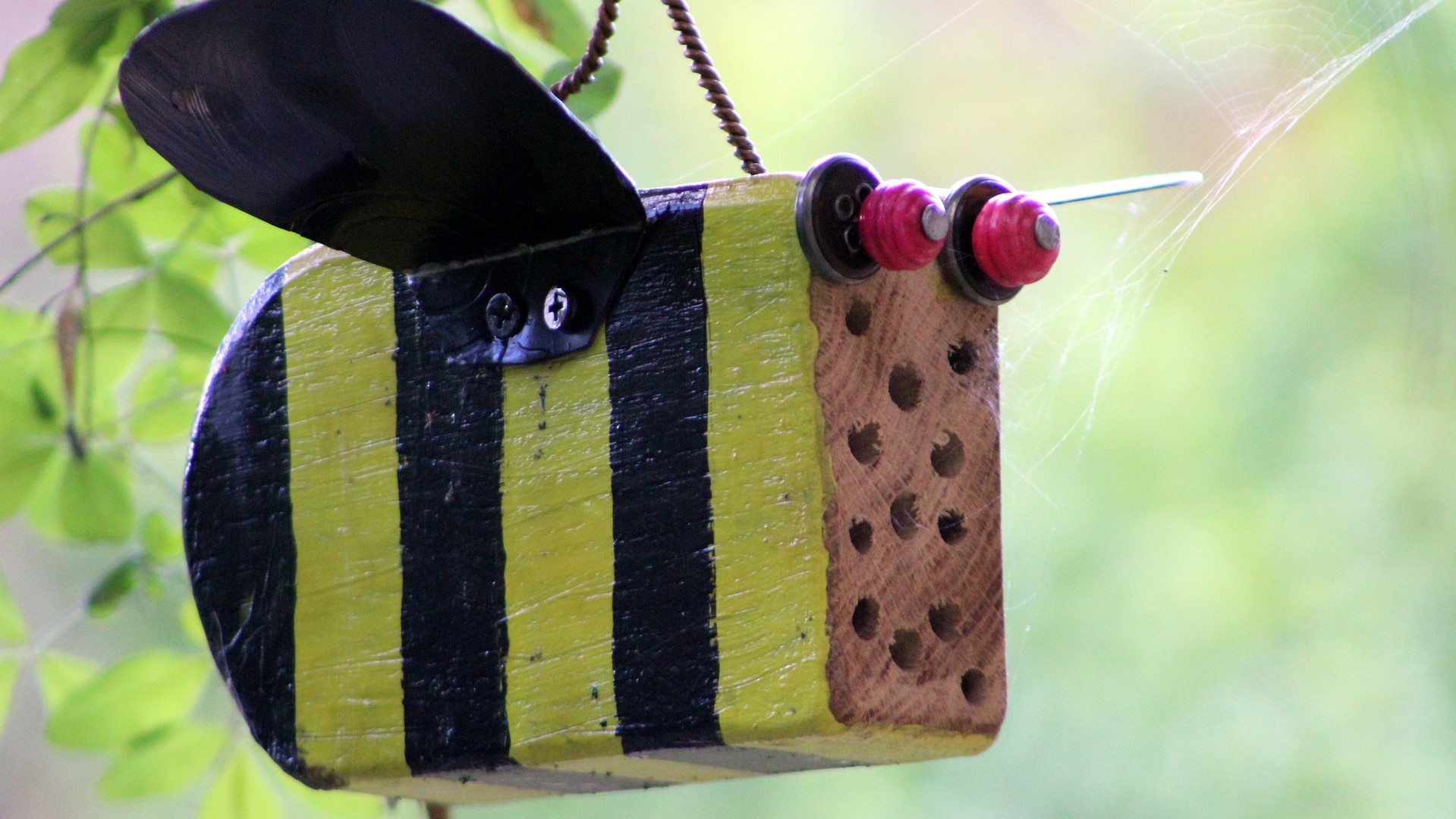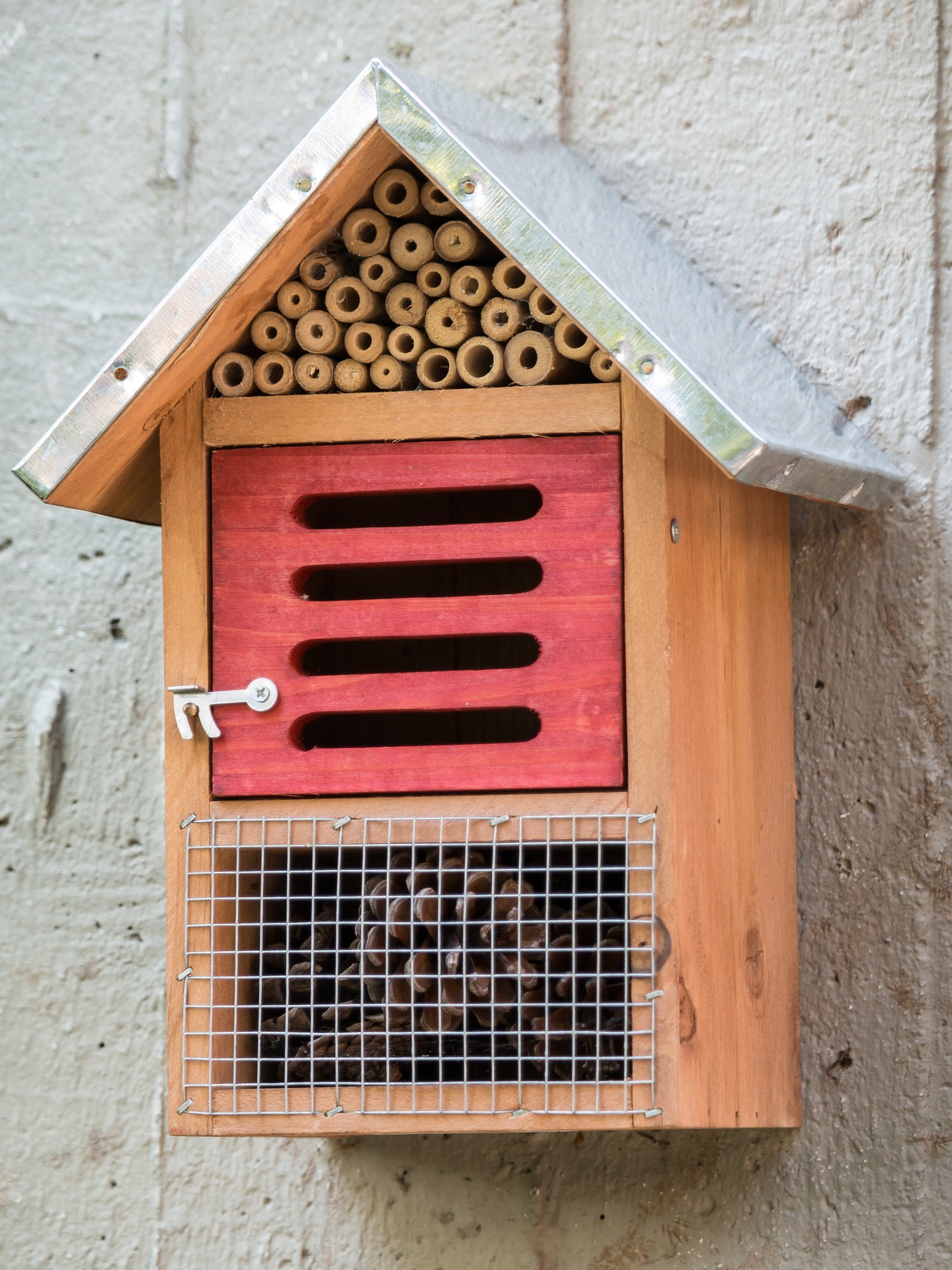When most people think about nesting bees, they think of a hive buzzing with activity. Although many species in the UK are social and live in colonies, the majority are solitary bees and have very different life cycles and nesting habits.

Red mason bees, leafcutter bees, hairy-footed flower bees and other types of cavity-nesting bees nest in holes in brickwork, wood and other materials close to their favourite nectar-rich flowers.
Bees that nest in this way are known as cavity nesters. Some of the most well-known cavity nesters within are the mason bees – a name given because of their wall or cell building skills within the nest that separate each egg they lay.
By offering a cavity-nester a place to nest, you’ll be making your garden a more attractive sanctuary for some of the UK’s rarest solitary bees. Here’s how you can do it.
Making a Bee Hotel
Bee hotels can easily be made. How you make it is up to you.
These bees need nesting cavities that are sealed at one end, of 15cm in length and have widths that range from 2 to 10 millimetres.
Bamboo, hollow reeds and grass stems are perfect for cavity-nesting bees and are cheap and easy to find.
A couple dozen cut-to-length tubes will offer plenty of choice for even the most hard-to-please mason bee.


These cavities need to withstand all the elements throw at them, year-round, so it’s a good idea to keep them in a weather-proof housing.
You can use empty two-litre plastic bottles that cut to length or a wooden housing for something a little more robust.
Alternatively, you can drill holes into a wooden block. This can give you greater control of the number of holes and their widths.
It’s important to keep in mind the size and weight of your bee hotel. Remember you want to offer a variety of 15cm-long cavities, but the bee hotel needs to be lightweight enough to hang safely or rest off the ground.
Buying a Bee Hotel
The easiest way to please all your local mason bees is to buy a bee hotel. Many varieties are available online. Plus you have so many choices in terms of style, colour, size, price and more to choose from.
Before you buy though, consider where to put your bee hotel. Bees can be very picky. Nests that are off the ground and offer south-facing holes - where they benefit from increased sunlight - are the most desirable.
This elevation and the warming effects of the extra sunlight gives each egg the best chance of survival.
You can buy your bee hotel from our partners here. All profits we make go directly into increasing awareness, educating and developing more bee-friendly sanctuaries across the UK.

